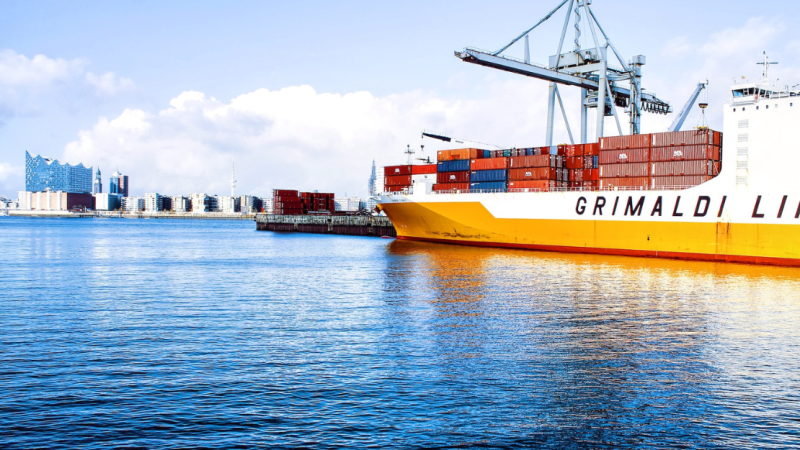Navigating a Transatlantic Move: Your Guide to a Smooth Transition

Categories :
Moving across the Atlantic is a daunting task, with many challenges and potential pitfalls. But it doesn’t have to be such an overwhelming experience. With careful planning and preparation, you can make your transatlantic move as smooth and successful as possible. So here's some invaluable advice that will help guide you through the entire process of navigating a transatlantic move - from setting up in your new country to dealing with bureaucratic paperwork. You'll learn how to take advantage of available resources, manage expectations, plan for unexpected delays and disruptions, adjust to cultural differences, find suitable accommodations, and more.
Choosing the Form of Transporation
One of the biggest decisions you’ll have to make when moving across the Atlantic is how you will get there. There are a range of options available, including air travel, shipping containers, and road freight. Each option has its own set of pros and cons, so it’s important to weigh up all your options carefully before making a decision. If you're shipping vehicles, such as cars or yachts, then the form of transportation needs to also fit regulations, such as the EU's import rules. If that's the case, then you can safely ship your yacht anywhere with Cross Chartering without having to worry about paperwork or regulations. Additionally, you’ll want to choose a form of transportation that fits your budget and timeline.
Setting Up Accounts
Setting up everything from financial accounts to utilities in your new country can be a time-consuming process, but it's essential if you’re going to be living there long-term. For this reason, it pays to do your research ahead of time and plan out exactly what accounts you’ll need. Make sure to open a bank account in your new country as soon as possible, so you can have access to funds right away. You'll also need to arrange for utilities such as electricity, gas, water, and Internet service - all of which will require different kinds of paperwork that needs to be taken care of before you move in.
Buying Insurance
You must purchase appropriate insurance when crossing the Atlantic - both for yourself and your belongings. There is a range of insurance options available, depending on the type of transportation you choose, but it pays to shop around for the best coverage and terms. You should also make sure that any necessary medical coverage is in place before you depart. If you plan to stay for an extended period, it’s worth considering additional coverage that covers lost baggage and other unexpected expenses.
• When choosing a policy, make sure you understand the details of what is covered and what isn't. Some policies may only cover medical costs if you are hospitalized, while others may provide more comprehensive coverage for things like evacuation services in case of an emergency.
• Additionally, read the fine print to ensure there aren’t any exclusions or conditions that could leave you without coverage if something were to happen while abroad. Lastly, keep all your documentation safe so you’ll have it on hand if needed when filing a claim.
Handling Paperwork
One of the most challenging parts of moving to a new country is tackling all the paperwork required by both countries’ governments. This can include visas, work permits, tax forms, and more. It's important to familiarize yourself with the rules of your destination country ahead of time so that you know what paperwork needs to be completed and when it needs to be filed. Additionally, research whether there are any potential taxes or fees associated with relocating so that you can plan for them accordingly. Especially if you're a business owner, make sure to check with local authorities to ensure that you comply with all legal requirements. Consider also seeking out the help of an immigration lawyer who can guide you through the process and answer any questions you may have regarding paperwork.
Preparing for Cultural Differences
When preparing for a move across the Atlantic, it’s essential to be mindful of the cultural differences you’ll encounter. Although these can be difficult to anticipate until you experience them, there are some steps you can take ahead of time to adjust your expectations and make sure that you're aware of any potential misunderstandings or faux pas. Research the customs and etiquette of your new country ahead of time, as well as language and communication norms so that you’ll be better prepared for the transition.
Finding Accommodation
Accommodation is another important factor to consider when moving abroad. You’ll need to plan to make sure you have a place to stay upon arrival, and there is a range of options available depending on your situation. If you're planning a short-term move, then renting an apartment or house may be the best option. However, if you're planning on staying for the long haul then it's worth looking into buying property in your new country - although this will require additional paperwork and financial considerations.
• Short-Term Solutions: If you’re only planning a short-term stay in another country, then renting an apartment is often the most convenient option. This will give you freedom and flexibility while still giving you a place to call home during your time abroad. Alternatively, if you have friends or family overseas, it may be worth staying with them for a while - although make sure to establish clear boundaries when it comes to responsibilities and expectations before doing so.
• Long-Term Solutions: Buying and/or investing in real estate, especially in Europe, can be a great way to diversify your holdings, provide yourself with long-term stability, and gain access to citizenship in the country where you purchase the property. However, it’s important to do extensive research on the legalities of buying real estate in your destination country and make sure you understand all the fees associated with such a purchase.








